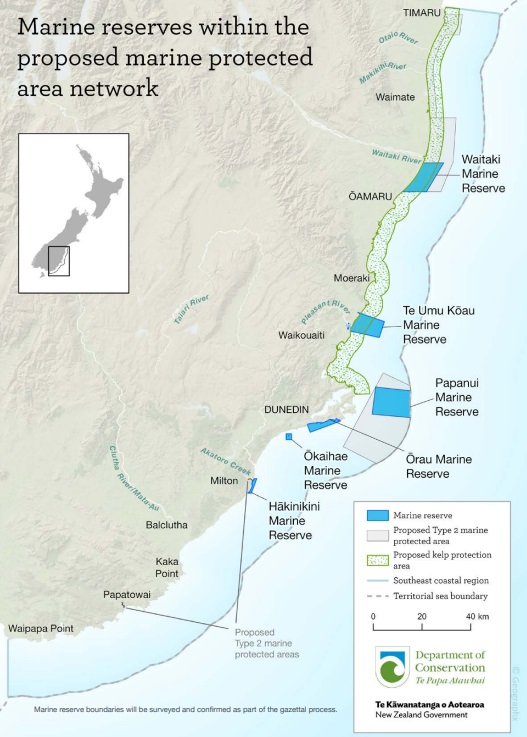
The "complexity" of the work at hand has delayed the creation of Otago’s marine reserves by several months, the Department of Conservation (Doc) has confirmed.
The creation of six new marine reserves along Otago’s coast, from the Waitaki River to Watsons Beach, near Milton, was announced in October last year.
In February, Doc said the marine reserves would come into force following an Order in Council and "gazettal" process, likely to be completed by the middle of this year.
However, there had been delays, Doc regulatory systems performance director Siobhan Quayle said.
"We are finalising the Orders in Council for the six marine reserves, which includes external review and consultation with several external entities.
"The next steps after this are largely administrative through to gazettal of the marine reserves.
"It has taken longer to draft and consult on the six Orders in Council than originally planned due to their complexity, which has extended the process by a few months."
However, she dismissed claims the process had been flawed.

"What was a labelling mistake has had major repercussions on how all the advice was put together for the Ministers of Conservation, Transport and Oceans and Fisheries", association executive officer Chanel Gardner said.
At the time Doc had not investigated the claim and was not in a position to respond.
Ms Quayle has now rejected the claim.
"We have investigated the Otago Rock Lobster Industry Association’s claim", she said. "Doc and Kāi Tahu had a shared understanding of the location of ‘The Church’ reef structure.
"The decisions of former Ministers on Te Umukōau Marine Reserve [one of the six] were based on an assessment of whether the marine reserve would ‘unduly interfere’ with commercial kōura [rock lobster] fishing.
"The assessment was informed by appropriate fisheries data, not the location of ‘The Church’."
Doc believed the process was robust and followed the requirements of the Marine Reserves Act.
Its view had been verified by an independent review of the department’s process, commissioned by a former Minister of Conservation, she said.
The process to establish the marine reserves — described as national parks of the sea — dates back to at least 2014.
It has been described as very contentious.
However, during consultation in 2020, 90% of more than 4000 submissions showed broad support for protected marine areas.












